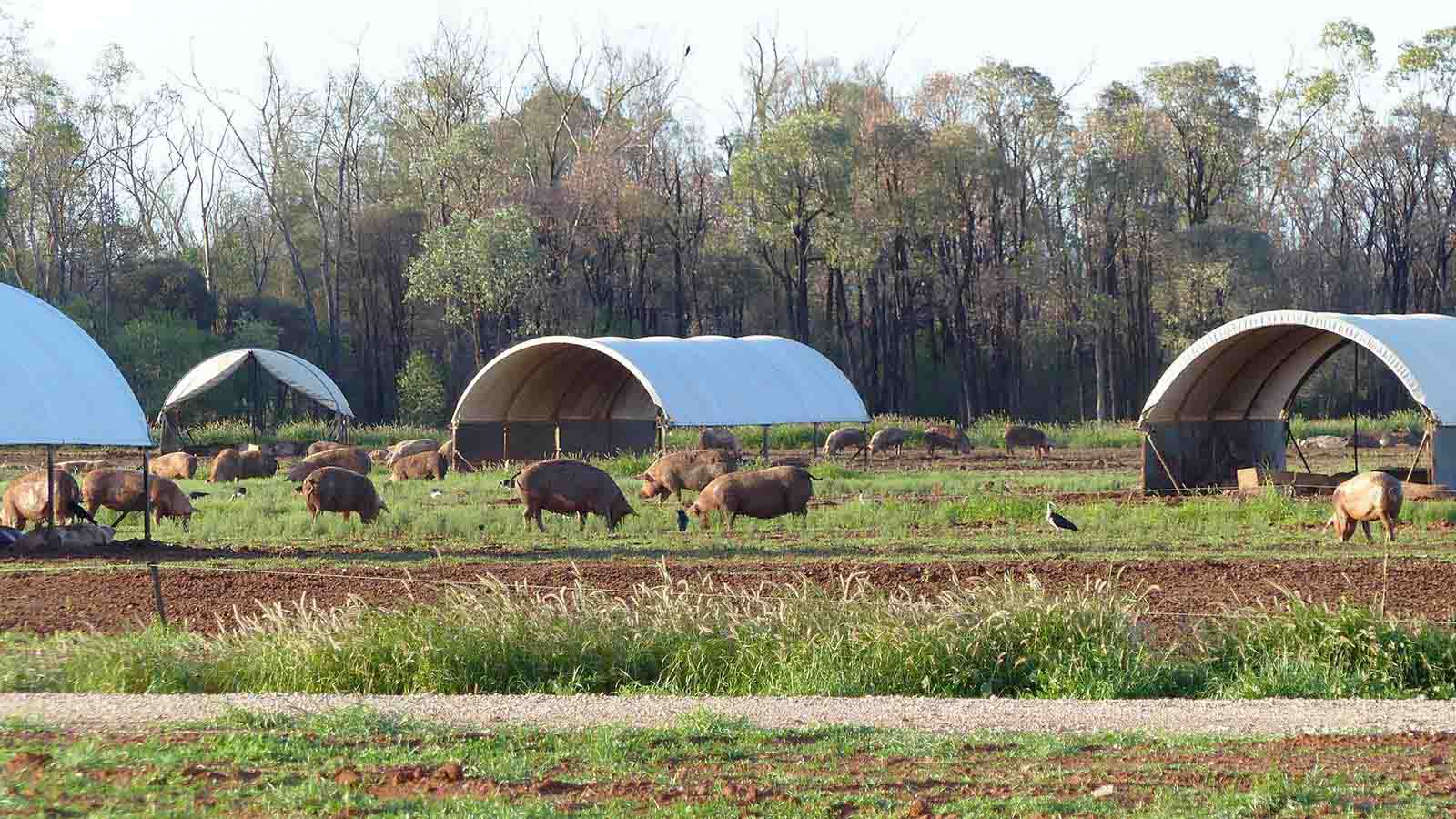
Buying the family farm carried on the generational stewardship of Gooralie for the Ladner family, with three generations and 90 years of history behind them. When Mark and Charisse took ownership of Gooralie, north of Goondiwindi, they respected the history but knew productivity, profitability and longevity could only be achieved if they diversified.
Mark, who studied at Orange Agricultural College, NSW, threw up the idea of free-range pigs when the couple looked to diversify their cropping, sheep and cattle operation. It might have seemed like a left-field suggestion and Charisse says she did question what Mark knew about pigs, let alone a large scale non-traditional operation. There was good reason for the suggestion: Mark drew on a fact that impressed him during his university days - that pigs had high feed efficiency. And the ability to produce returns regardless of the season ticked a massive box for income security regardless of rainfall.
The ability to produce returns regardless of the season ticked a massive box for income security regardless of rainfall.
With a strong livestock management background, based around pastures and paddocks, free-range pork was the natural next step for the Ladners. Little did the couple know their 400-sow initial venture would over the next 20 years grow to 24,300 standard pig units, and the establishment of their own antibiotic-free, free-range, high animal welfare brand, Gooralie Pork. The name pays tribute to their origins, but speaks volumes about the kind of operation they wanted to run with natural production systems underpinning all they do. That their pigs are well looked after is testament to their commitment to doing things right and Mark says it shows in the feedback they get from consumers of their free-range pork: that its quality is high and that it tastes different.
The challenge they see ahead is education, to encourage people to spend that bit extra on pork that is produced in a manner that could satisfy consumer desires for more natural and high animal welfare systems. The decision to incorporate free-range pork into a mixed farming enterprise was probably the easiest part of the process, and without clear or established guidelines, there has been plenty to learn along the way.
Mark says their biggest lesson has been that for every problem, there is a solution, and that attitude has brought business resilience as they tackle challenges head on. And along with that resilience has come satisfaction of doing something well. Charisse says there is a sense of pride whenever she leaves the office and drives up to to see the pigs grazing in paddocks, knowing they are producing high quality protein with the highest standards of care and welfare.

